2025
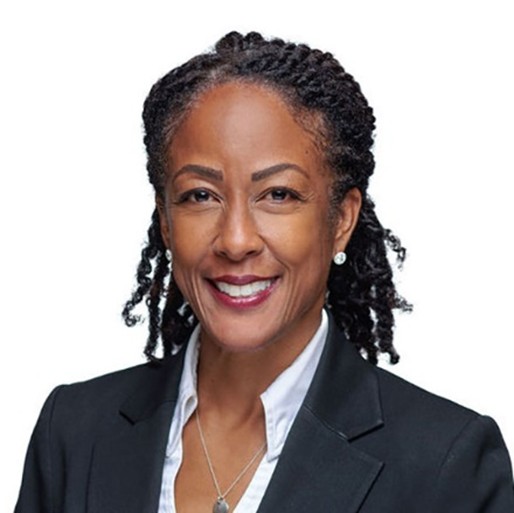
Dr. Kimberly L. Jones, PhD, F. AEESP, BCEEM
Associate Provost, Office of the Provost and Chief Academic Officer
Professor, Department of Civil and Environmental Engineering Howard University
Lecture: Bridging Environmental Research, Policy and Community Engagement for a Sustainable Future
Abstract
Clean and reliable water is essential for healthy communities, yet access to safe water remains uneven — particularly in underserved areas. Across the country and around the world, communities face challenges like aging infrastructure, water contamination and climate-related disruptions.
This lecture will explore how engineering research can support more sustainable and equitable water systems. Dr. Kimberly L. Jones will share case studies from her work in water treatment, source protection and resource recovery. These examples highlight the importance of aligning scientific research with community priorities and policy goals to create lasting, equitable solutions.
The talk will also examine how environmental justice principles can be built into research and design, ensuring that new solutions meet the needs of the communities most affected by water insecurity.
Bio
Dr. Kimberly L. Jones is Associate Provost for Faculty Affairs and a Professor in the Department of Civil and Environmental Engineering at Howard University. She holds a B.S in Civil Engineering from Howard University, a M.S. in Civil and Environmental Engineering from the University of Illinois and a Ph.D. in Environmental Engineering from The Johns Hopkins University. Her research focuses on water and wastewater quality, environmental policy, membrane separations, global water treatment and environmental justice.
Dr. Jones served as chair of the U.S. EPA’s Chartered Science Advisory Board and holds leadership roles with the National Science Foundation and the National Academies of Sciences, Engineering, and Medicine. She is also a Presidential Appointee to the Board of Directors of the National Institute of Building Sciences (NIBS), where she advises on infrastructure and environmental resilience. Her work often centers on integrating equity into environmental research on policy.
She has received numerous honors, including the NSF CAREER Award, Howard University’s Researcher of the Year and Essence Magazine’s Top Women Achievers award.
2024
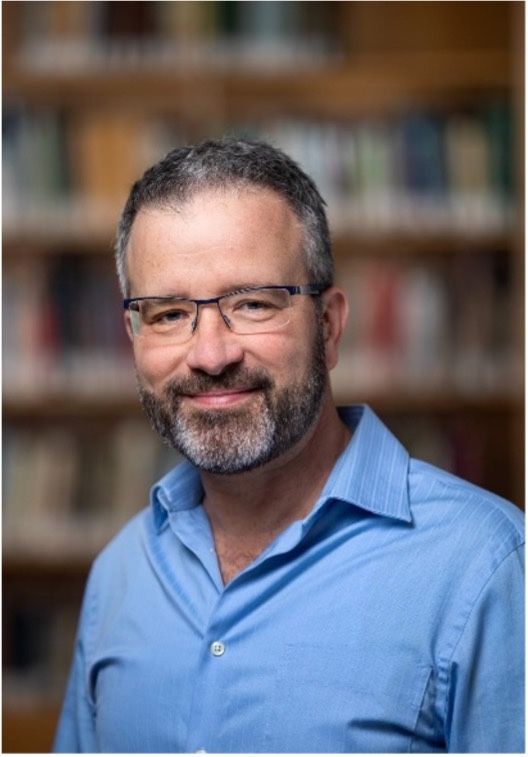
Dr. Laurence C. Smith
John Atwater and Diana Nelson
University Professor of Environmental Studies
Institute at Brown for Environment & Society (IBES)
Department of Earth, Environmental and Planetary Sciences at Brown University
Lecture: Rivers of Power: How an ancient force rules us still
Abstract
This talk will explore some of the many ways that humans have used rivers over time, and how we continue to do so today. Since our earliest cities established along the Tigris-Euphrates, Indus, Nile, and Yellow Rivers, anthropogenic use of rivers has changed over time and varied by region. Yet their critical importance has persisted because they provide five fundamental benefits: access, natural capital, territory, well-being, and a means of projecting power. The manifestations of these benefits have changed, but societal demands for them have not.
Bio
Laurence C. Smith is the John Atwater and Diana Nelson University Professor of Environmental Studies in the Institute at Brown for Environment & Society (IBES) and Earth, Department of Environmental and Planetary Sciences (DEEPS) at Brown University. Previously, he was Professor and Chair of Geography at the University of California, Los Angeles (UCLA), where he also held a joint appointment in the Earth, Planetary, and Space Sciences. His research interests include the Arctic, water resources, and satellite remote sensing technologies. He is a Guggenheim Fellow of the John S. Guggenheim Foundation and an elected Fellow of the American Geophysical Union (AGU). His work has appeared prominently in Assessment Reports of the United Nations’ Intergovernmental Panel on Climate Change (IPCC). He is currently assisting NASA with a new satellite mission to monitor global water resources, and the World Economic Forum with social science issues of Arctic development.
His general-audience book THE WORLD IN 2050: Four Forces Shaping Civilization’s Northern Future (Plume: New York, 2011; U.K. edition titled THE NEW NORTH, Profile: London, 2011 with translations in 14 languages) synthesizing cross-cutting trends in natural resource demand, demographics, globalization, and climate change with emphasis on northern countries was winner of the Walter P. Kistler Book Award and a NATURE Editor’s Pick of 2012. His second book RIVERS OF POWER, about rivers and society (Hachette Group USA/Canada; Penguin Press U.K; plus overseas translation editions), was a GEOGRAPHICAL Best Book of 2020. His research has received coverage in The New York Times, The Wall Street Journal, The Economist, The Los Angeles Times, The Washington Post, The Globe and Mail, The Financial Times, Discover Magazine, NPR, CBC Radio, BBC and others.
2023
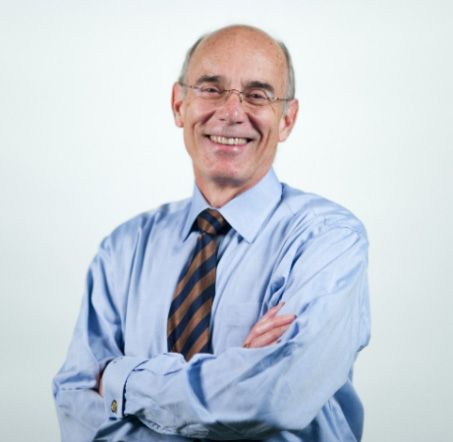
Dr. Rafael L. Bras
K. Harrison Brown Family Chair
Professor of Civil and Environmental Engineering and Earth and Atmospheric Sciences
Georgia Institute of Technology
Lecture: The Venice Gates: A short history of a long, successful (but controversial) project
Abstract
The frequency and magnitude of tidal flooding of the lagoon and city of Venice have increased dramatically for over 100 years. This trend can be attributed to past periods of accelerated subsidence and present sea level rise. This flooding disturbs commerce, life and seriously damages the infrastructure of the region. The solution to the problem is a series of gates across the three inlets of the lagoon of Venice. These gates separate the Adriatic from the lagoon in periods of very high meteorological tides and stops flooding. The construction of the multi-billion-dollar system is completed and represents an engineering and science marvel. It has been a long road, involving innovative and creative engineering, political intrigue and scandal, and triumph and vindication for the design. This talk presents the problem, discusses why the particular solution was chosen, illustrates the elements of the built system and discusses the political, social and management issues that threatened completion and the long-term survival of the city.
Bio
A native of Puerto Rico, Rafael L. Bras is a professor in the School of Civil and Environmental Engineering and School of Earth and Atmospheric Sciences at the Georgia Institute of Technology. He holds the K. Harrison Brown Family Chair.
Dr. Bras was provost and executive vice president for Academic Affairs at the Georgia Institute of Technology. Prior to becoming provost, Dr. Bras was Distinguished Professor and Dean of the Henry Samueli School of Engineering of the University of California, Irvine (UCI). For 32 years prior to joining UCI he was a professor in the departments of Civil and Environmental Engineering and Earth, Atmospheric and Planetary Sciences at MIT. He is past Chair of the MIT Faculty, former head of the Civil and Environmental Engineering department and Director of the Ralph M. Parsons Laboratory at MIT. He has served as advisor to government and private institutions.
Dr. Bras has received many honors and awards, including honorary degrees from several universities. He is an elected member of the U.S. National Academy of Engineering, the Academy of Arts and Sciences of Puerto Rico, and is a corresponding member of the Mexican National Academy of Engineering and the Mexican National Academy of Sciences. He also is an elected Fellow of AGU, the American Society of Civil Engineers, the American Meteorological Society, and the American Association for the Advancement of Science. He is a Distinguished Member of the American Society of Civil Engineers and received the Georgia Society of Professional Engineers Lifetime Achievement Award.
As a consultant Dr. Bras chaired a panel of experts that supervised the design and construction of a multibillion-dollar project to protect the City of Venice from floods. He is a Senior Advisor to Elsevier.
2021
Evans Lecture panelists:
- Daniel Abramson, Associate Professor, Urban Design & Planning, College of Built Environments
- Ann Bostrom, Weyerhaeuser Endowed Professor, Environmental Policy, Evans School of Public Policy & Governance
- Derek Kilmer, U.S. Representative for Washington State’s 6th congressional district
- Michael Motley, Associate Professor and Associate Chair, Civil and Environmental Engineering
Lecture: Mitigating Tsunami Risk on the Washington Coast
Abstract
Tsunamis resulting from Cascadia and other Pacific Rim subduction zone earthquakes are the greatest natural hazard for Washington coast residents. Recent and ongoing research at the University of Washington seeks to improve understanding of this hazard and the risk it poses to natural and built environments, develop effective strategies for mitigating risk, and advance efforts to implement mitigation measures. Implementing meaningful mitigation strategies requires integrating geophysical, social, and behavioral sciences, engineering and planning as well as significant community support, financial investment, and political will.
Four panelists will share their collective expertise in these topics during the 2021 Daniel L. and Irma Evans Lecture. UW faculty members Dan Abramson, Ann Bostrom, and Mike Motley will bring knowledge and expertise from years of research; they will discuss tsunami hazards and risks, the social and economic impact of natural hazard events, risks to coastal infrastructure systems, adaptive community planning, and risk communication and perception. The UW faculty will be joined by Derek Kilmer, United States Congressional Representative for Washington’s 6th District, who will bring his perspective as someone born and raised on the Olympic Peninsula. Kilmer also has experience as a senior member of the House Appropriations Committee, where he sees firsthand how federal investments enable communities across the Pacific Northwest to become more resilient against a changing climate.
Panelist bios:
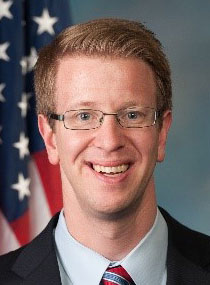 Derek Kilmer serves as the United States Representative for Washington’s 6th Congressional District. Born and raised in Port Angeles, Derek saw firsthand how the region's economy has struggled, and the impact that has had on families and communities. After college, Derek put his education into practice here in Washington, earning over a decade of experience working in economic development in the Puget Sound region before putting his experience to work in Olympia and Washington, D.C. Derek was reelected to a fifth term in the U.S. House of Representatives in 2020 and chosen by his Democratic colleagues to serve on the House Appropriations Committee, one of only four ‘exclusive’ committees in the House. Derek serves on the Interior and Environment Subcommittee, Defense Subcommittee, and Energy and Water Development Subcommittee.
Derek Kilmer serves as the United States Representative for Washington’s 6th Congressional District. Born and raised in Port Angeles, Derek saw firsthand how the region's economy has struggled, and the impact that has had on families and communities. After college, Derek put his education into practice here in Washington, earning over a decade of experience working in economic development in the Puget Sound region before putting his experience to work in Olympia and Washington, D.C. Derek was reelected to a fifth term in the U.S. House of Representatives in 2020 and chosen by his Democratic colleagues to serve on the House Appropriations Committee, one of only four ‘exclusive’ committees in the House. Derek serves on the Interior and Environment Subcommittee, Defense Subcommittee, and Energy and Water Development Subcommittee.
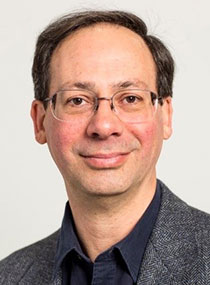 Dr. Daniel Abramson is an associate professor in the UW’s Department of Urban Design and Planning. His research focuses on community adaptive planning for disaster recovery and hazard mitigation, in the context of changing regional urban-rural relationships in China, Japan, and the Pacific Northwest. Since 2011, he has participated in a series of earthquake and tsunami resilience projects with coastal Washington communities including Seattle, Makah Tribe, the Cities of Aberdeen and Westport, Shoalwater Bay Tribe, and South Beach, Grays Harbor and Pacific Counties. Most recently, these projects involve planning for different possible Cascadia seismic events and sea level rise using localized scientific models of the hazards, and student-supported design, development, and technological strategy generation with diverse local stakeholders and experts in civil and computer engineering, public policy, architecture, landscape architecture and other fields.
Dr. Daniel Abramson is an associate professor in the UW’s Department of Urban Design and Planning. His research focuses on community adaptive planning for disaster recovery and hazard mitigation, in the context of changing regional urban-rural relationships in China, Japan, and the Pacific Northwest. Since 2011, he has participated in a series of earthquake and tsunami resilience projects with coastal Washington communities including Seattle, Makah Tribe, the Cities of Aberdeen and Westport, Shoalwater Bay Tribe, and South Beach, Grays Harbor and Pacific Counties. Most recently, these projects involve planning for different possible Cascadia seismic events and sea level rise using localized scientific models of the hazards, and student-supported design, development, and technological strategy generation with diverse local stakeholders and experts in civil and computer engineering, public policy, architecture, landscape architecture and other fields.
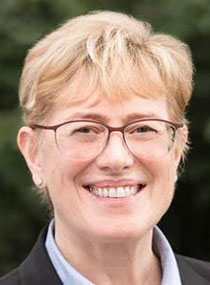 Dr. Ann Bostrom is the Weyerhaeuser Endowed Professor in Environmental Policy in the Daniel J. Evans School of Public Policy & Governance at the UW. Her research focuses on risk — perceptions, communication, assessment and management — and decision making under uncertainty. Using ethnographic, survey, and experimental methods, with interdisciplinary research teams she is currently investigating trustworthy AI for earth sciences; earthquake risk perceptions, preparedness and early warning (with the Social Science Working Group of the ShakeAlert Joint Committee on Communication, Education and Outreach); communicating about advances in Cascadia subduction zone sciences; tropical cyclone forecasts and warnings (with the National Center for Atmospheric Research, for NOAA); and mental models, perceptions and communications about climate change. She was a member of the committee that authored the 2010 National Research Council report on Tsunami Warning and Preparedness: An Assessment of the U.S. Tsunami Program and the Nation's Preparedness Efforts (National Academies Press, Washington, D.C.).
Dr. Ann Bostrom is the Weyerhaeuser Endowed Professor in Environmental Policy in the Daniel J. Evans School of Public Policy & Governance at the UW. Her research focuses on risk — perceptions, communication, assessment and management — and decision making under uncertainty. Using ethnographic, survey, and experimental methods, with interdisciplinary research teams she is currently investigating trustworthy AI for earth sciences; earthquake risk perceptions, preparedness and early warning (with the Social Science Working Group of the ShakeAlert Joint Committee on Communication, Education and Outreach); communicating about advances in Cascadia subduction zone sciences; tropical cyclone forecasts and warnings (with the National Center for Atmospheric Research, for NOAA); and mental models, perceptions and communications about climate change. She was a member of the committee that authored the 2010 National Research Council report on Tsunami Warning and Preparedness: An Assessment of the U.S. Tsunami Program and the Nation's Preparedness Efforts (National Academies Press, Washington, D.C.).
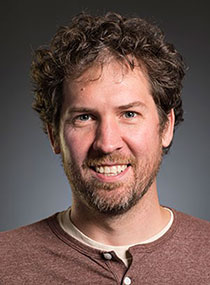 Dr. Michael Motley is the John R. Kiely Associate Professor of Civil and Environmental Engineering at the University of Washington. His primary research is focused on fluid loading of civil structures and large-scale fluid-structure interactions. Following the series of tsunami events across the Pacific Ocean following the turn of the century, his research has specifically explored tsunami impacts along the Pacific coastline and he is working to improve the resilience of coastal infrastructure through the development and refinement of tsunami loading guidelines in U.S. building codes. Using a combined experimental and numerical approach, Dr. Motley and his team have studied the interactions between tsunami waves and complex, three-dimensional coastal bridges, probabilistic approaches to community resilience, and most recently the interactions between large-scale, wave-induced debris fields and the built environment.
Dr. Michael Motley is the John R. Kiely Associate Professor of Civil and Environmental Engineering at the University of Washington. His primary research is focused on fluid loading of civil structures and large-scale fluid-structure interactions. Following the series of tsunami events across the Pacific Ocean following the turn of the century, his research has specifically explored tsunami impacts along the Pacific coastline and he is working to improve the resilience of coastal infrastructure through the development and refinement of tsunami loading guidelines in U.S. building codes. Using a combined experimental and numerical approach, Dr. Motley and his team have studied the interactions between tsunami waves and complex, three-dimensional coastal bridges, probabilistic approaches to community resilience, and most recently the interactions between large-scale, wave-induced debris fields and the built environment.
2020
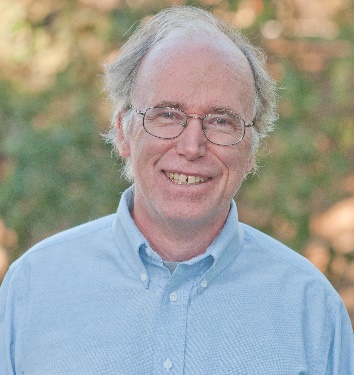
Dr. Jay R. Lund
Co-Director, Center for Watershed Sciences
Distinguished Professor of Civil and Environmental Engineering
University of California, Davis
The success of societies: Engineering’s role
Watch the video
Dr. Jay Lund is Co-Director of the Center for Watershed Sciences and a Distinguished Professor of Civil and Environmental Engineering at the University of California – Davis. He has long enjoyed teaching, research, and engagement on many aspects of theory and practice for water management and policy, usually trying to integrating economics and operations research with traditional engineering. He has become particularly engaged in working on the wide range of water problems in California with many collaborators, and remains enthusiastic about the potential of system analysis and optimization to provide understanding and insights for management and policy.
In California he was on the Advisory Committee for the 1998 and 2005 California Water Plan Updates, and has served as Convenor of the California Water and Environment Modeling Forum and Chair of California’s Delta Independent Science Board. He is a member of the US National Academy of Engineering. He has long been involved in applying economic and optimization ideas to provide insights on California’s water problems, including the development and use of the CALVIN model of California’s water supply system. He is a lead author of Comparing Futures for the Sacramento-San Joaquin Delta (UC Press 2010) and Managing California’s Water: From Conflict to Reconciliation (PPIC 2011).
Dr. Lund has a B.A. in International Relations and Regional Planning from the University of Delaware (1979) and a BS in Civil Engineering, MA in Geography, and PhD in Civil Engineering from the University of Washington (Seattle). He has advised over 140 graduate students, including 15 who are faculty at research universities globally, and has over 400 publications and reports.
Abstract
Engineering is successful or unsuccessful within a social context. This talk reflects on the role of civil engineering in the success of societies, as well as current and future challenges. The development and evolution of the engineering profession in the service of societies will be reviewed from its origins to the present.
Infrastructure, the specialty of civil and environmental engineers, supports public health and prosperity for large-scale urban civilizations. Globally, every urban civilization has elaborate infrastructure systems that provide safety, shelter and water, which support relative health and prosperity. This infrastructure, and the institutions and behaviors which support it, both reflects and reinforces the social structures of these civilizations and enables them to further develop and change.
Some major challenges for engineering today include preserving its practical effectiveness on traditional problems while addressing current challenges such as social justice, public health, ecosystem health, and serving a changing economic structure.
2019
![]()
Roger Millar
Secretary of Transportation, Washington State Department of Transportation
Thursday, May 9, 3:30pm
Kane Hall
Lecture: Transportation Matters: Moving Washington Forward
Lecture synopsis and biography
2018
![]()
Bridget Scanlon
Senior Research Scientist, The University of Texas at Austin, Jackson School of Geosciences
Thursday, May 3, 3:30pm
Kane Hall
Global Water Resource Assessments: Models vs. Satellites
Lecture synopsis and biography
Watch lecture video
2016
![]()
Daniel Sperling
Distinguished Professor of Civil Engineering and Environmental Science and Policy and founding Director of the Institute of Transportation Studies at UC Davis
Thursday, April 14, 4pm
William H. Gates Hall, Room 138
The Three Transportation Revolutions… as seen by an academic, regulator, and policy wonk.
Watch lecture video
2015
![]()
Dr. Suzanne Lacasse
Technical Director at the Norwegian Geotechnical Institute
Thursday, May 14, 2015, 4:30pm
Kane Hall, Room 110
Hazard, Risk and Reliability in Geotechnical Practice
Lacasse Biography | Lecture Synopsis | Video | Event photos
2014
![]()
Dr. Mark Z. Jacobson
Professor of Civil and Environmental Engineering, Director of the Atmosphere/Energy Program, Stanford University
May 15, 2014
Roadmaps for transitioning Washington State and all other 49 U.S. states to wind, water, and solar power for all purposes
View Flyer | Watch Video
2013
Dr. Bernard Amedei
Professor of Civil Engineering, University of Colorado - Boulder
May 30, 2013
Engineering in Sustainable Human Development: Challenges and Opportunities
2012
Clark Brockman
Director, SERA Architects' Sustainability Resources Group
May 10, 2012
Imagining Tomorrow's High-Performance Neighborhoods, Today
2011
Dr. Gail H. Marcus
Independent Consultant on Nuclear Power Technology and Policy
May 19, 2011
Nuclear Power: Past, Present and Future
2010
Roger Garratt
Director of Resource Acquisition and Emerging Technologies, Puget Sound Energy
May 20, 2010
Renewable Energy: Seems Like Old Times
2009
Peter Head
Director of Arup UK, Head of Global Planning
April 30, 2009
Entering the Ecological Age: The Engineer's Role
2007
William K. Reilly
Senior Adviser to TPG, Founder of Aqua International Partners
April 9, 2007
The Water Age